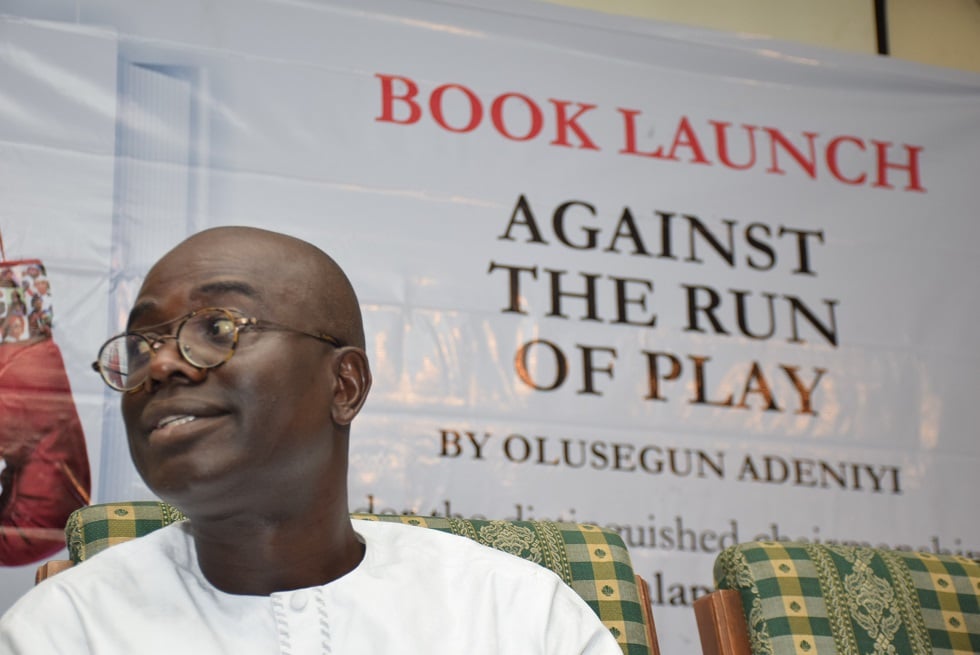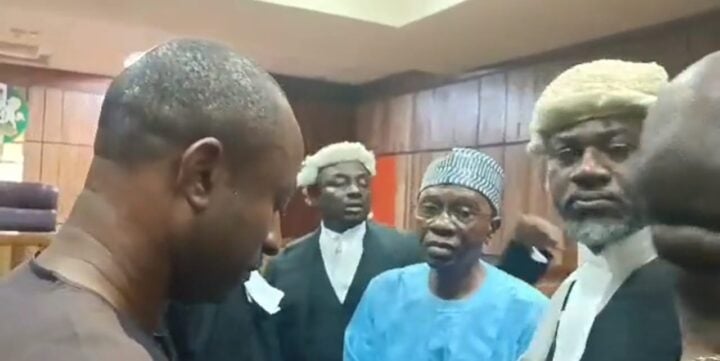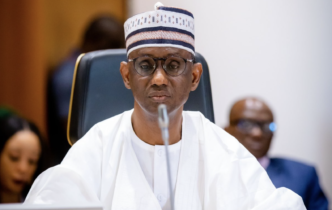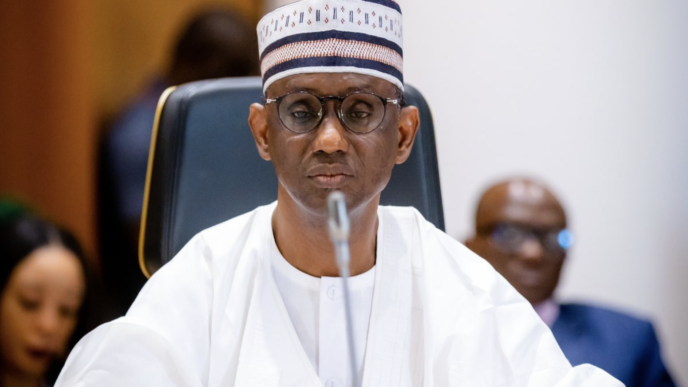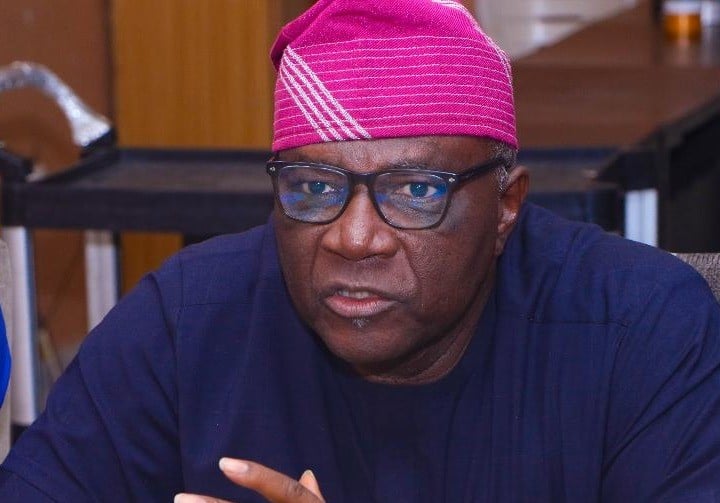Adeniyi is re-publishing his four books on the political transition years in a single volume
Olusegun Adeniyi, ace author and columnist, has recounted how Ibrahim Badamasi Babangida (IBB), retired general and former military president, threatened to sack the two political parties as well as the national assembly in 1993 if they insisted on the revalidation of the June 12 presidential election.
In his book, ‘Politricks: National Assembly under Military Dictatorship in Nigeria (July 1992-Nov 1993)’, Adeniyi gave a blow-by-blow account of the political intrigues that ensued with the annulment of the election.
MKO Abiola of the Social Democratic Party (SDP) had defeated Bashir Tofa of the National Democratic Party (NRC) in an election considered by local and international observers as credible, free and fair.
Adeniyi’s book — first published in 1994 and republished in 2010 with a foreword by David Mark, then senate president, and one of the central characters in the June 12 saga — is part of a compilation of the four books he wrote on Babangida’s ill-fated transition programme due for release in June 2025.
Advertisement
He wrote that he “had to present the facts as I saw them as a reporter even as I relied on the official National Assembly Hansards for the proceedings on the floor of the two Houses during those trying days in the life of the nation.”
Babangida, who released his autobiography, ‘A Journey in Service’, last week, claimed it was forces led by Sani Abacha, his defence chief, that annulled the election without his knowledge.
However, Adeniyi — who covered the presidential villa from 1992 to 1996 for African Concord magazine, owned by Abiola — recalled a series of meetings between Babangida and members of the political class during which the military strongman insisted that he would not hand over to Abiola.
Advertisement
Adeniyi wrote: “The (national) assembly which had in April 1993 adjourned sitting could not resume on 22 June as planned because the federal government did not release money for their accommodation in Abuja.
“Coming at a period when General Babangida had given the political class what amounted to the devil’s alternatives, the assembly men and women, many of whom had been compromised, found it difficult to stand up for justice.
“At a meeting with representatives of the dissolved two political parties on July 5 1993, Babandiga made it clear that he would not allow the SDP candidate believed to have won the June 12 presidential election, Bashorun M. K. O. Abiola to succeed him. ‘Gentlemen, we just have to hand over on 27 August and I can’t hand over to Abiola,’ he reportedly kept repeating.
“When the then SDP national executive committee members refused to yield ground even as NRC members said they were ready for fresh election, Babangida brought up his last joker: the threat to dissolve the two parties and sack all elected council chairmen, governors and National Assembly members.”
Advertisement
‘IGNORE IBB’S THREAT’
At a meeting of SDP’s senators, it was agreed that Babangida’s threat should not be taken seriously.
Adeniyi recalled: “At a meeting held in Senator Wande Abimbola’s NICON NOGA Hilton suite the next day, the consensus of the SDP Senators was that Babangida’s threat be ignored.
“One senator even said at the meeting that he had reliable information that Babangida had set in motion the machinery for the victory of Bashir Tofa of the NRC so as to create the stalemate that would enable him continue in office knowing that the SDP would not accept any result that gave victory to the other party.
Advertisement
“By Tuesday morning, the Deputy Senate President, Albert Legogie, believed to be the government’s pointsman in the Senate with an eye on the presidency of the Interim National Government began to lead the campaign that it was not in the best interest of the National Assembly to be ‘confrontational.’
“But the Senate President, Dr. Iyorchia Ayu, and the Speaker of the House of Representatives, Chief Agunwa Anaekwe, championed the cause for upholding the election and announcing the results.
Advertisement
“And on July 6, 1993, there was a notice of motion on the floor of the Senate by the Majority Leader, Professor Wande Abimbola.
“The notice on the order paper read: That the Senate now considered the Presidential Election held on Saturday 12 June 1993 and hereby resolves to uphold the result and urge the Federal Military Government to declare the remaining results of the election. That the President-elect arising from the presidential election of Saturday June 12, 1993 should be sworn in on 27 August.
Advertisement
“On the eve of the assembly session, the military moved in by mobilizing traditional rulers and top politicians across the country to talk to the assembly men on the need to not “rock the boat.” The brief included to urge them to accept the annulment of the June 12, 1993 presidential election as a fait accompli.
“It was therefore no coincidence that on the day the motion was supposed to have been deliberated, the Senate could not attain a quorum while the House of Representatives which was also to consider a similar motion did not sit. But in spite of the inability of the National Assembly to debate the issue, the principal officers of the two legislative houses continued to rail against the annulment thus, pitting them against the federal military government.”
Advertisement
In his contribution on the floor of the senate on August 19, 1993, Bola Tinubu (then senator, now president) said: “This is a self-inflicted crisis because without the abortion or annulment of the June 12 election, there would be no crisis like this. We have a government that made laws and abused its own law. Therefore, the present military administration by virtue of abrogation and violation of its own decree has committed a crime”
Babangida had addressed a joint section of the national assembly on August 17, 1993, during which he said he would be stepping aside in August same year.
He put in place an interim government headed by Ernest Shonekan, which was removed by Abacha in November 1993.
Abacha dissolved the two parties, sacked the national assembly, removed the elected governors and fired state legislators and council chairpersons and councillors.
The books in Adeniyi’s single-volume collection to be republished are: ‘Fortress on Quicksand’ (1993), focused on the futile efforts by 23 presidential aspirants in the SDP and NRC before they were all disqualified and banned from contesting elections; ‘POLITRICKS: National Assembly under Military Dictatorship’ (1994), detailing the intrigues of having a civilian legislature with Babangida as a military president; ‘Abiola’s Travails’ (1995), published to mark the 60th birthday of the businessman-turned-politician at a period he was in detention, and ‘The Last 100 Days of Abacha’ (2005).
Add a comment
